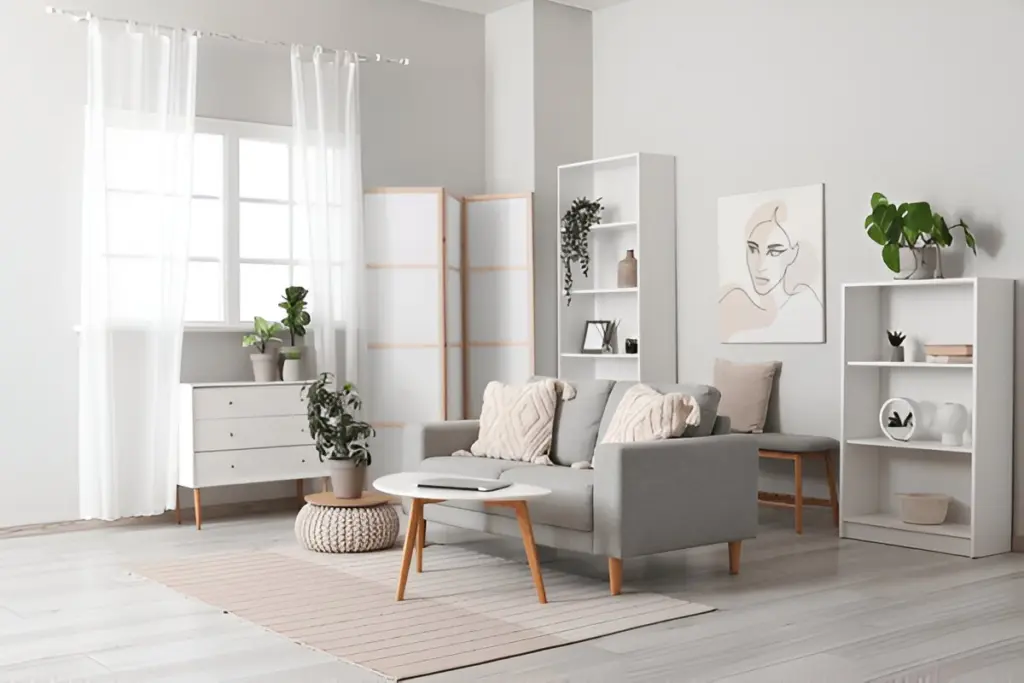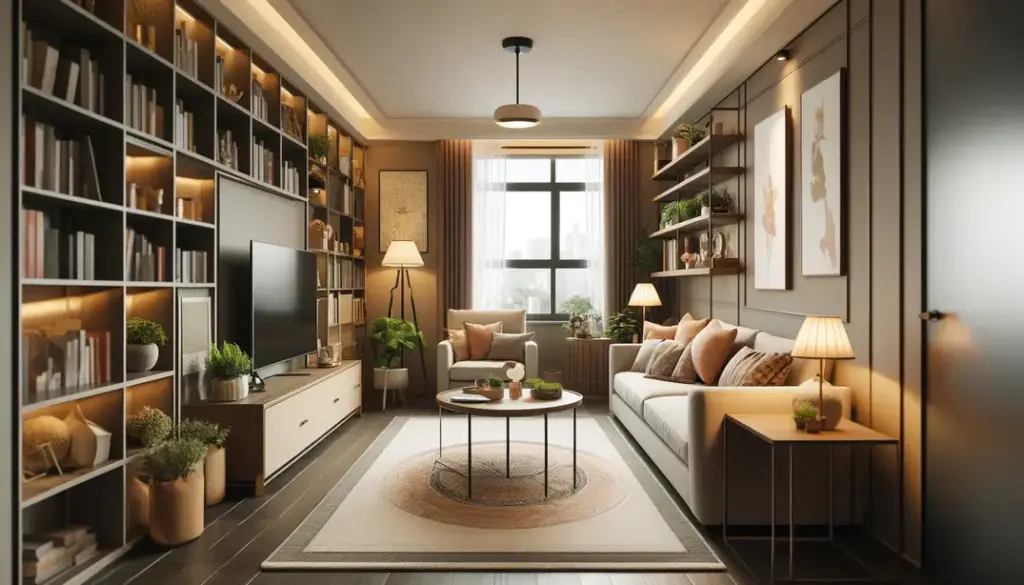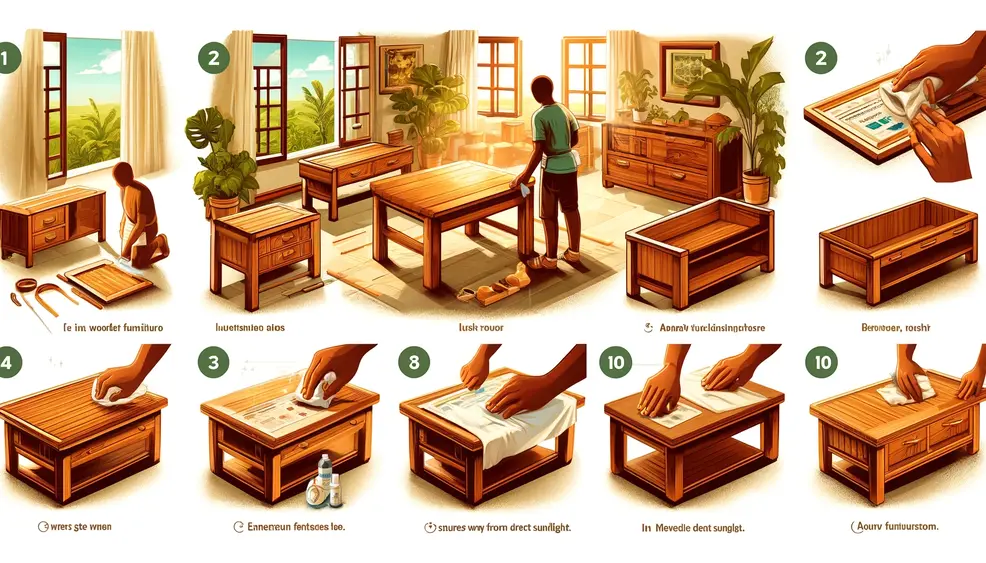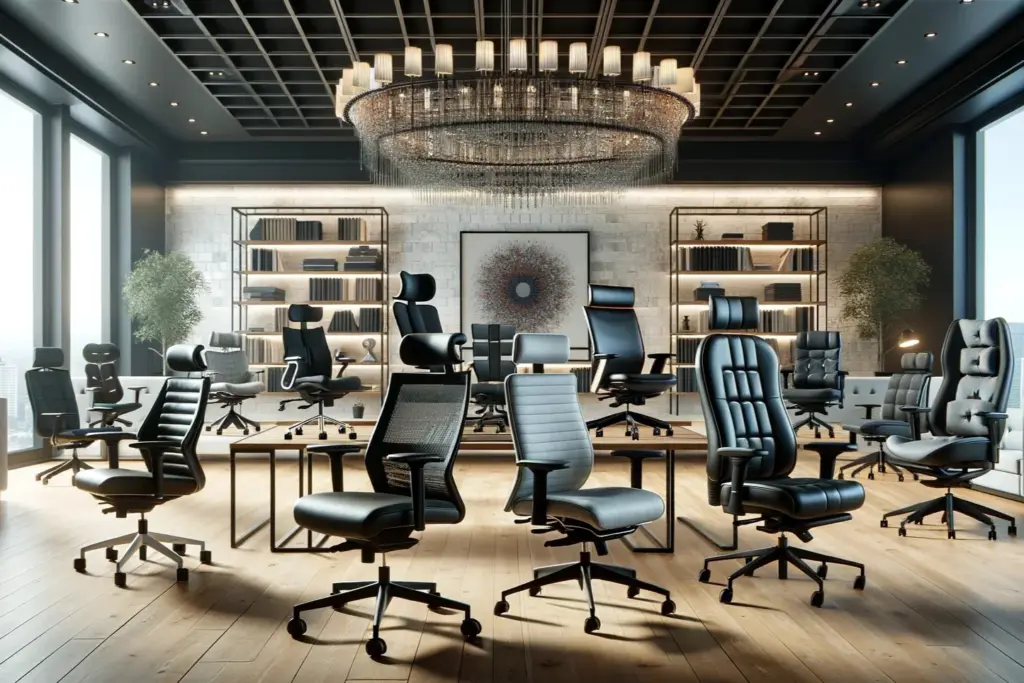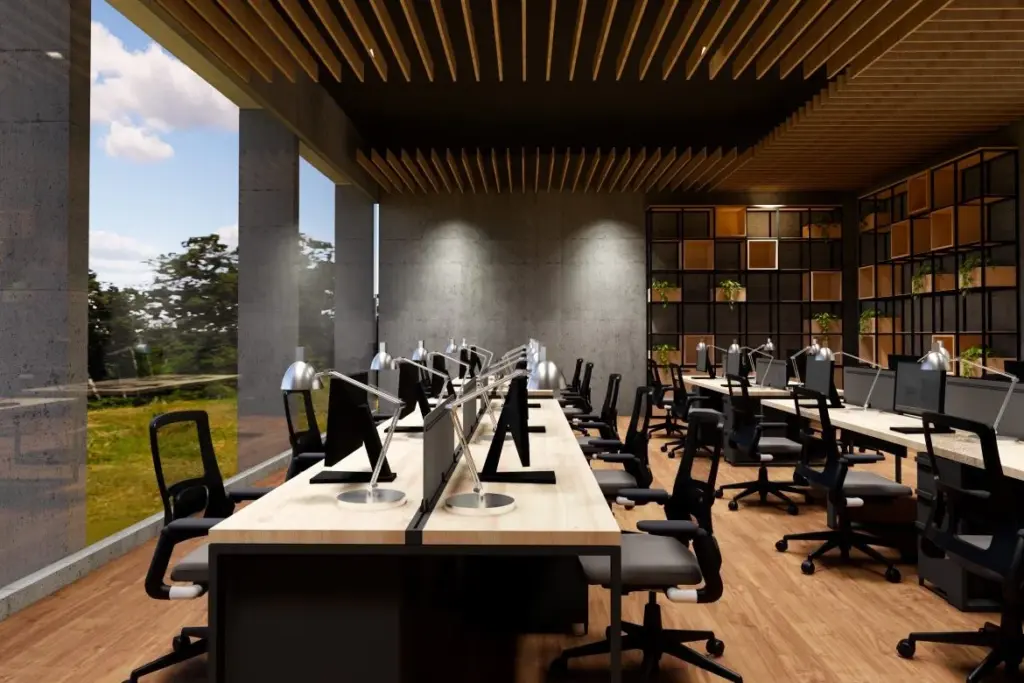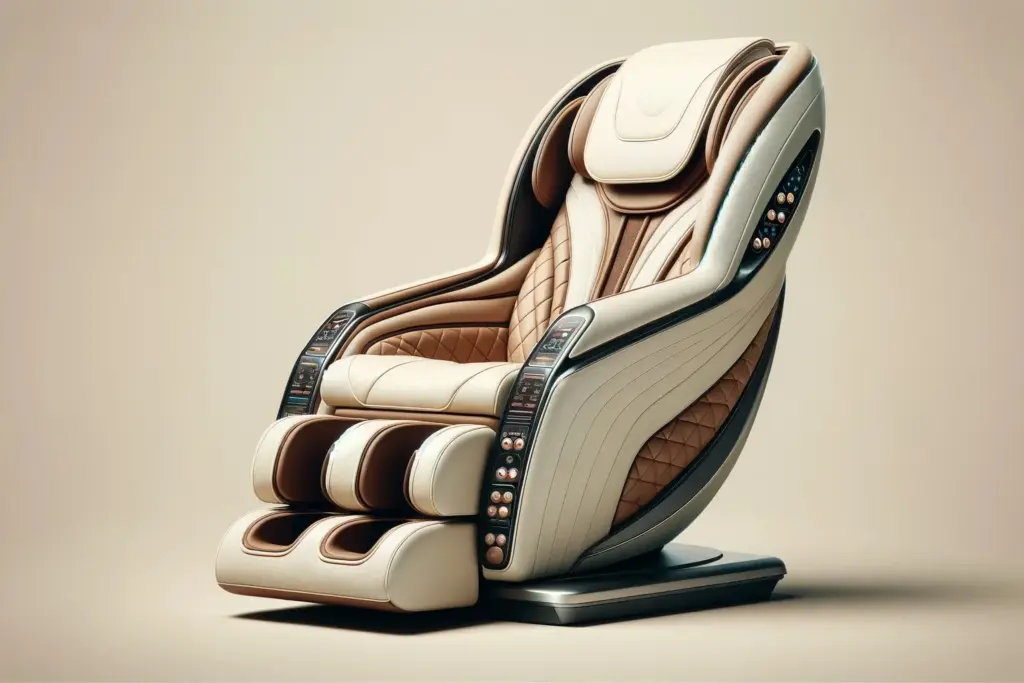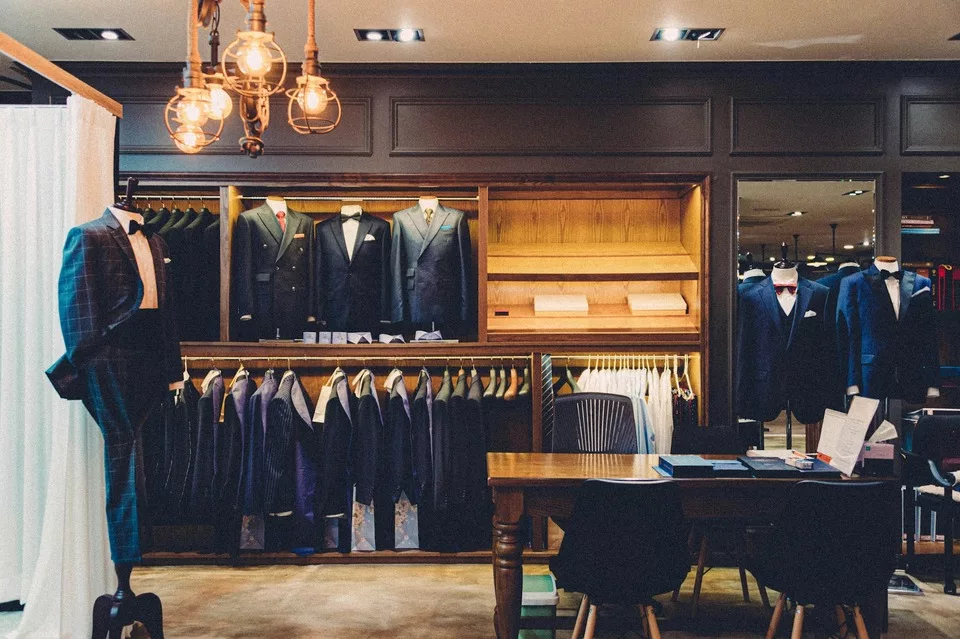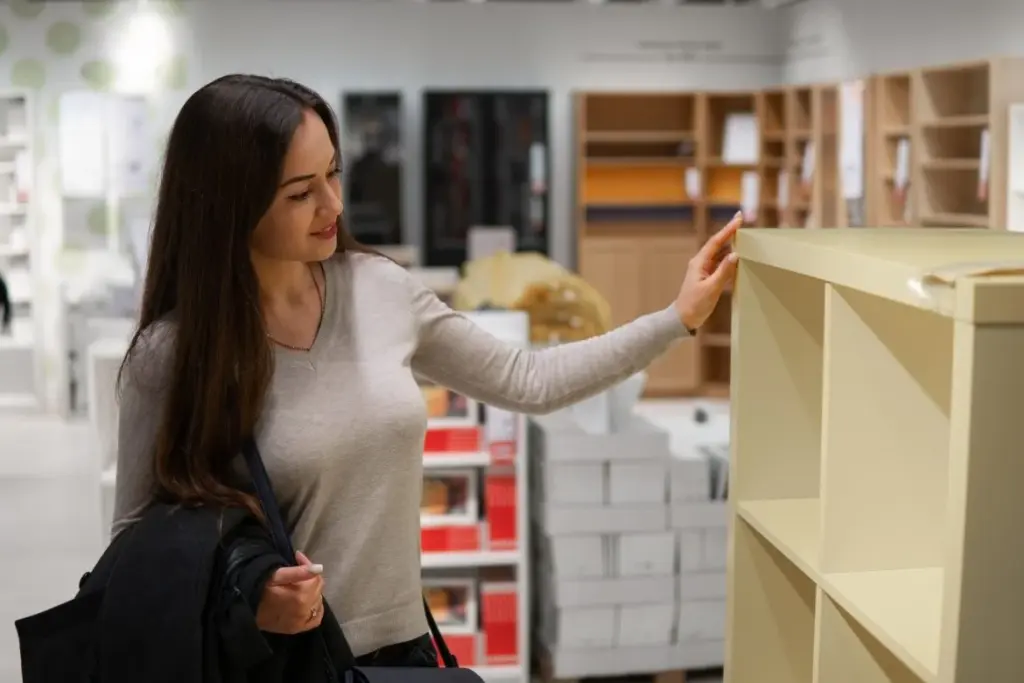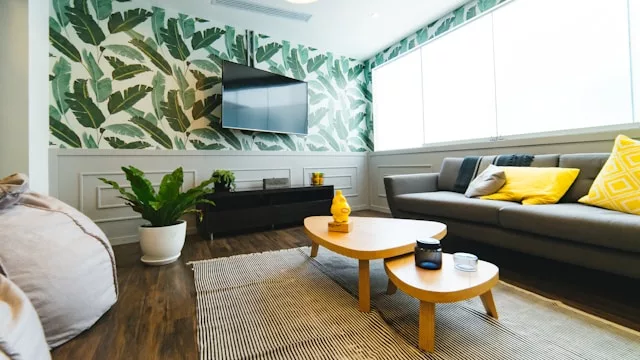When a room feels uninviting or off-balance, it’s often not the color or decor, but the shape and placement of your furniture. Many homeowners focus on looks or price but overlook how the shape of furniture impacts flow comfort, and even well-being.
Furniture that clashes with the natural energy of a space can create tension and discomfort without you realizing it. Over time, this can affect mood, concentration, and even sleep quality.
This is where Feng Shui furniture plays a valuable role. By choosing furniture design shapes that support natural energy flow, you can create a home that looks beautiful and feels calm, balanced, and welcoming.
This blog explores how specific furniture shapes align with Feng Shui principles and how to use them to design a more harmonious home.
Why Shape Matters in Feng Shui Furniture
Feng Shui is an ancient Chinese philosophy. It simply means arranging objects or spaces to create harmony and balance. In Feng Shui, shapes represent elements of nature: wood, fire, earth, metal, and water. Each component has a specific energy, and the linked shapes carry symbolic and emotional meaning.
Choosing furniture without considering this balance can disrupt the natural flow of chi (life energy) in a room. On the other hand, shapes that align with Feng Shui can encourage calmness, clarity, and positive energy.
For example, sharp angles can create tension in a space, while round or curved edges promote ease and flow. The goal is to create a space where energy can circulate freely without being blocked or rushed.
Understanding what each shape represents—and where it works best can help you choose stylish home furniture that supports design and energy balance.
How Circular Furniture Shapes Support Flow and Connection
In Feng Shui, circular or oval furniture shapes are strongly linked to unity and completeness. These shapes are associated with the metal element, which brings clarity, focus, and helpful energy.
Round tables are a classic example. In dining rooms, round tables encourage open conversation and remove hierarchy from seating. Since there are no corners, energy circulates freely around the space, creating a calm and connected atmosphere.
Circular coffee tables or curved sofas in lounges or living areas help soften the layout and reduce harsh lines. These pieces can make a room feel less rigid and open, especially in smaller or shared spaces.
If you want to promote peaceful flow in communal areas, circular shapes are an excellent choice.
Why Square and Rectangular Shapes Offer Stability
Square and rectangular shapes represent the earth element, which brings stability, grounding, and nourishment.
These shapes work well in spaces that need structure, such as home offices, bedrooms, and storage areas. A square nightstand or a rectangular desk offers visual and energetic support, helping anchor the space.
Rectangular sofas and dining tables are also practical for larger households, offering clear boundaries without feeling cold. However, balance is key; too many sharp corners in one room can create stagnant or sharp energy.
Pair rectangular furniture with curved accessories like round cushions, circular rugs, or oval mirrors to soften this effect and restore energetic balance.
Curved Edges and Soft Lines for Calmer Living
Feng Shui favours gentle, flowing lines that mimic the curves of nature. Furniture with rounded corners or soft silhouettes reduces visual tension and makes a room feel more nurturing.
This is especially important in spaces where relaxation is the goal, such as bedrooms, reading corners, or meditation zones. Rounded bedframes, curved armchairs, or soft-edged side tables help foster a sense of safety and calm.
Curves can also be helpful in family spaces where children are present. Besides being safer, they help soften the overall energy of a busy room.
If your space feels too rigid or closed off, introducing furniture with curved or rounded details can invite warmth and emotional ease.
Triangular Shapes and Sharp Angles: Use with Caution
In Feng Shui, triangles represent the fire element, symbolizing passion, transformation, and intensity. While fire energy is vital in small amounts, too much can lead to agitation and restlessness.
Furniture with pointed edges or sharp corners, especially when positioned near entryways or resting areas, can create what’s known as “poison arrows.” These direct lines of energy can cause discomfort and unease.
While angular pieces can bring drama or boldness into a space, they should be balanced carefully. If you choose a triangular shelf or pointed side table, place it in an area that benefits from active energy—like a hallway or creative studio.
Use rounded or softened edges where calm is needed to help diffuse fire energy and reduce visual stress.
Furniture Height and Proportion Also Matter
Beyond shape, Feng Shui also considers the height and scale of furniture. A piece that’s too tall or bulky for a space can block natural light or restrict movement, making a room feel heavy or unbalanced.
Low-profile furniture tends to encourage groundedness and calm. In lounges and bedrooms, low seating can promote relaxation and intimacy. Taller pieces, like bookshelves or wardrobes, should ideally be placed against walls to avoid overpowering the centre of a room.
Proportion is also key. A small round table might feel awkward in a large, rectangular room unless paired with complementary elements. Keeping visual and energetic balance in scale and shape helps support harmony throughout the space.
How to Apply Feng Shui Furniture Principles in Each Room
Every room in the home serves a different purpose, so the furniture shape strategy will vary.
Living Room
Use a mix of circular and rectangular shapes to support conversation and comfort. A round coffee table in the centre and a rectangular sofa create grounding and flow.
Bedroom
Go for soft lines and curved corners to support rest and intimacy. Avoid pointed corners facing the bed.
Dining Area
Choose round or oval dining tables to promote equality and easy interaction. If space only allows for a rectangle, use fabric elements (runners, centrepieces) to soften the edges.
Home Office
Here, square and rectangular shapes offer structure and productivity. Avoid overly rounded desks, which may lack energetic direction. Pair them with plants or curved lighting to balance sharp lines.
Each space benefits from furniture that supports its purpose, and Feng Shui shapes guide those choices with intention.
Final Thoughts
Choosing furniture based on shape isn’t just a design decision—it’s an energy decision. Understanding how different forms influence flow, comfort, and emotional balance allows you to create a home that supports aesthetics and well-being.
Whether redecorating one room or furnishing an entire home, considering Feng Shui furniture shapes can guide your choices. Rounded edges soften tension, rectangles provide grounding, and thoughtful placement helps everything work harmoniously.



